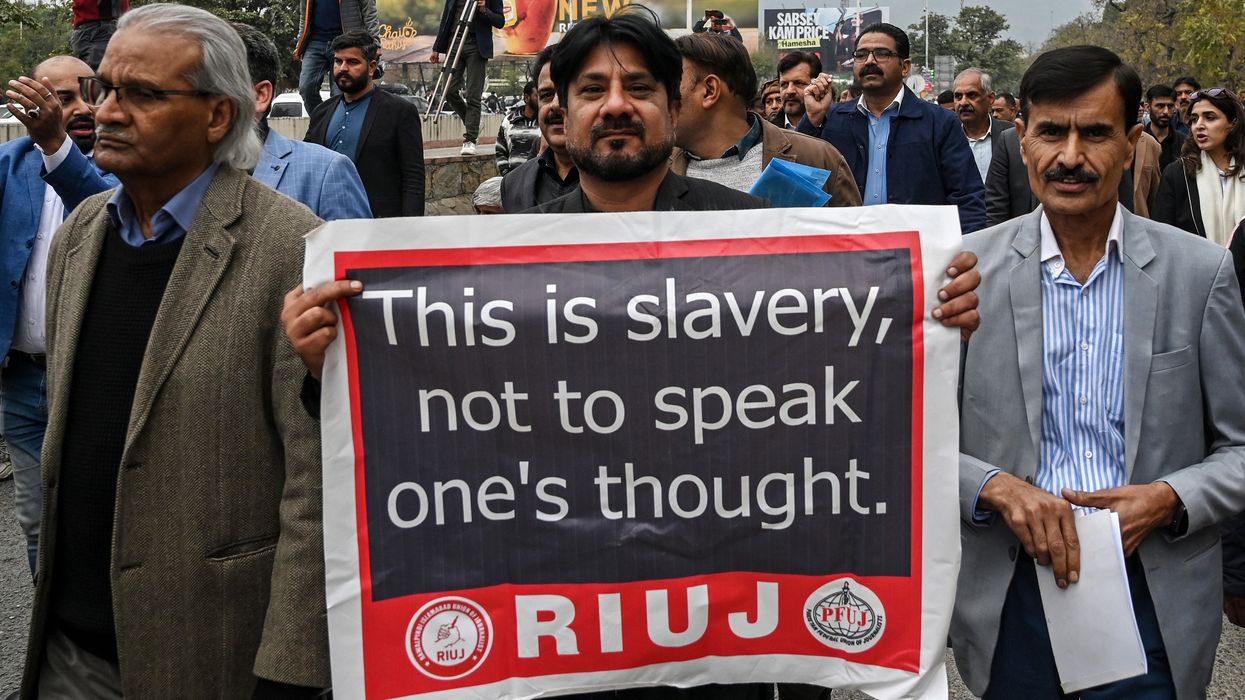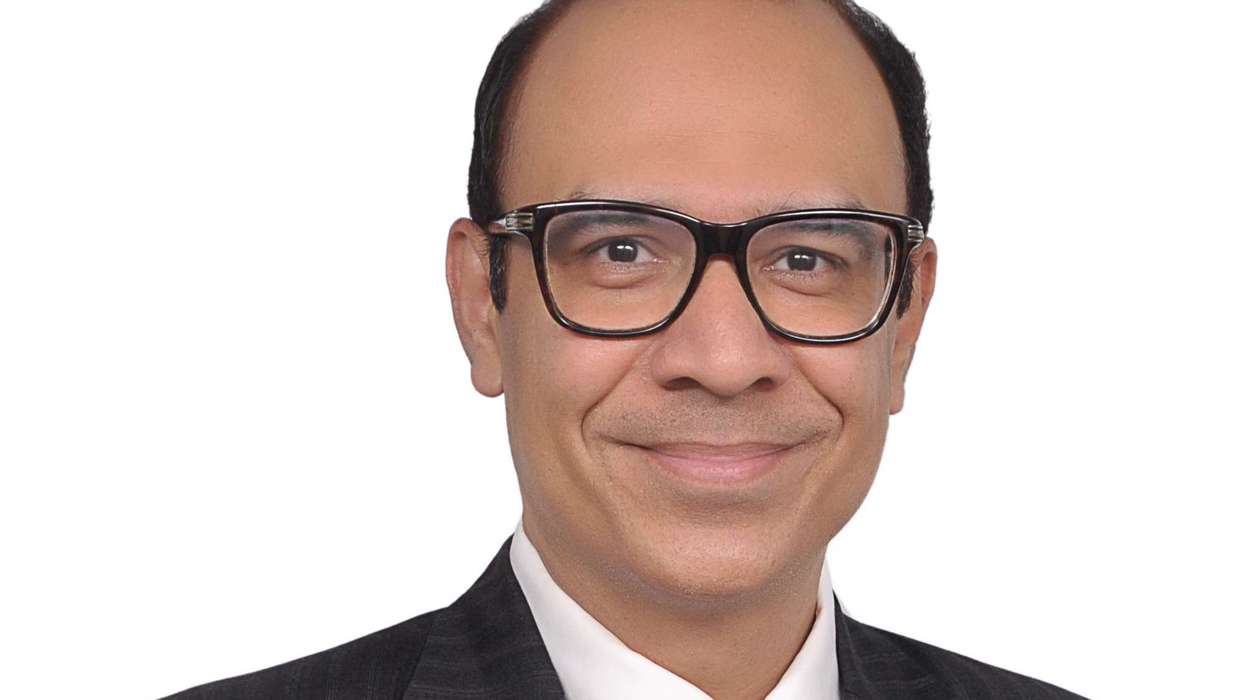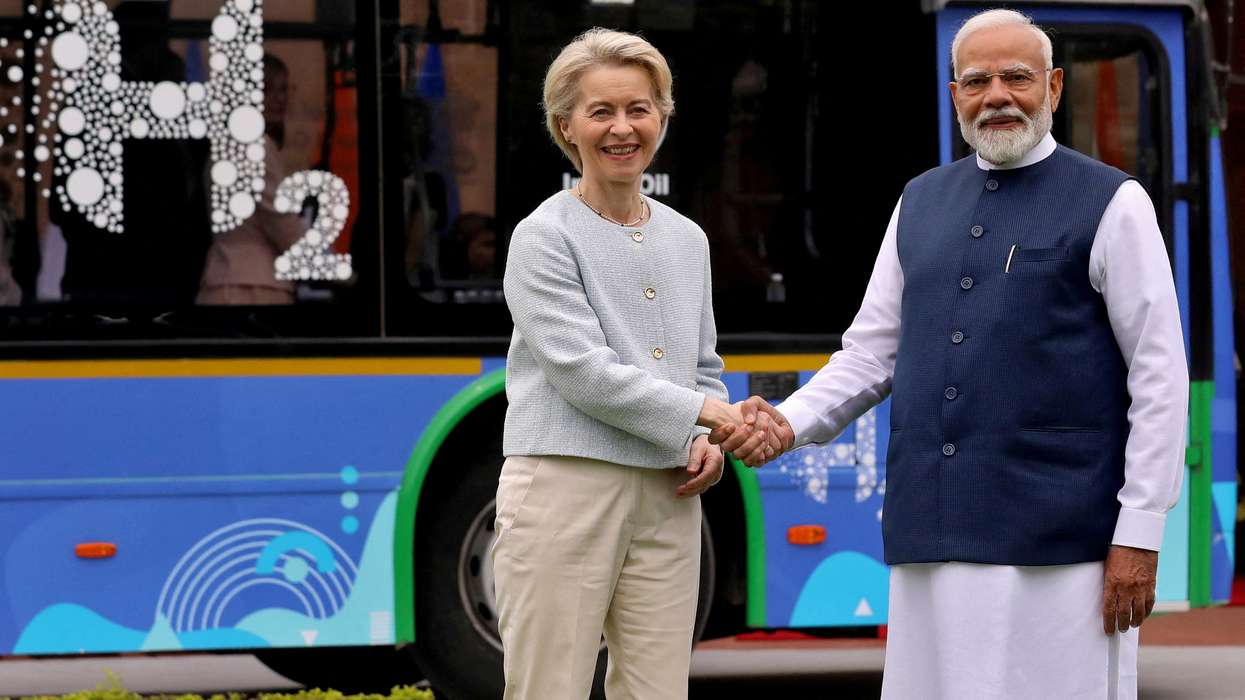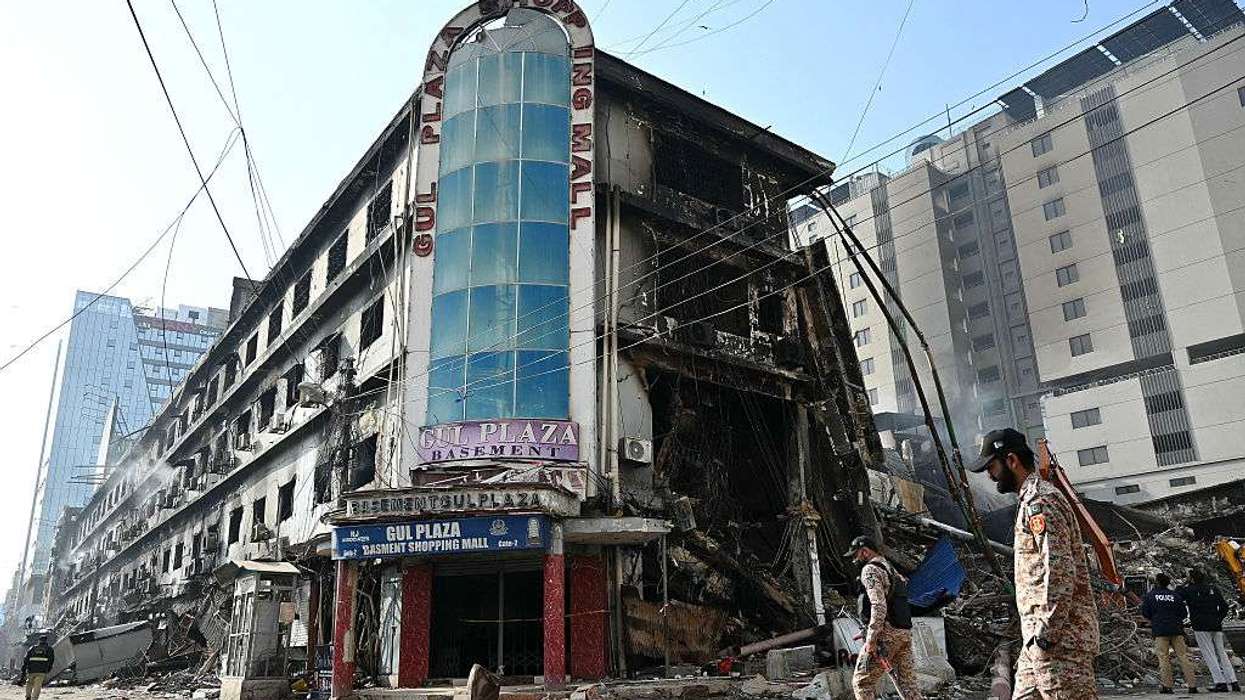PAKISTAN criminalised online disinformation on Tuesday (28), passing legislation dictating punishments of up to three years in jail and prompting journalist protests accusing the government of quashing dissent.
The law targets anyone who “intentionally disseminates” information online that they have “reason to believe to be false or fake and likely to cause or create a sense of fear, panic or disorder or unrest”.
It was rushed through the National Assembly with little warning last week before being approved by the Senate on Tuesday as reporters walked out of the gallery in protest.
Facebook, TikTok and WhatsApp are among the most popular social media platforms in Pakistan, where low digital literacy fuels the spread of false information, conspiracy theories and deepfakes.
Some YouTube journalists blur the line between reporting and heavily partisan commentary tailored to their millions of followers. Many lack fact-checking skills and contribute to spreading false information, garnering thousands of views.
“I am sure that in the future, the anarchy caused in society through social media will be controlled,” government minister Tanveer Hussain said as the bill was approved.
It will now be passed to the president to be rubber-stamped.
The new law says social media platforms must register with a newly established regulatory body, with non-compliance leading to temporary or permanent bans.
It also grants Pakistan’s intelligence agencies the authority to investigate disinformation and allows any citizen to file a case.
Senior journalist Asif Bashir Chaudhry, a member of the Pakistan Federal Union of Journalists, said the government had assured reporters they would be consulted, but they were “betrayed and backstabbed”.
“We genuinely wanted a law against misinformation, but if it’s not being done through open discussion but rather through fear and coercion, we will challenge it on every available platform,” Chaudhry said.
“Even under dictatorships, legislation was not forcefully rammed through parliament the way this government is doing now.”
Pakistan media workers have reported rising state censorship in recent years and the public has shifted to consuming much of its news from social media.
“The mainstream media is already compromised. That’s the reason why many journalists turned to YouTube,” YouTube journalist Asad Ali Toor said in the capital Islamabad, where more than 150 journalists rallied against the bill.
“The state wants the same control of social media as it is controlling the mainstream media,” Toor said.
Around 50 journalists also protested the bill outside the press club of the southern city of Karachi on Tuesday afternoon.
Analysts said the government is struggling with legitimacy after elections last February plagued by rigging allegations, and with former prime minister Imran Khan jailed on corruption charges he insists are politically motivated.
Khan’s supporters and senior lieutenants in his Pakistan Tehreek-e-Insaf (PTI) party have faced a crackdown, with thousands rounded up and Khan’s name censored from television.
Much of PTI’s campaigning has moved online where the party’s young tech-savvy base has continually called for protests.
PTI senator Syed Shibli Faraz called the new law “highly undemocratic” and said it would “fuel the political victimisation” of their supporters.
Digital rights activist Nighat Dad said there has been “one restrictive law after another, introduced under the guise of public interest or national security”.
The real intent is “consolidating power and controlling the narrative,” she said.
Social media site X was shut down in the wake of February’s election, as posts alleging vote tampering spread on the platform.
Pakistan is ranked 152 out of 180 countries in a press freedom index compiled by Reporters Without Borders.
At least 239 cases against journalists accused of spreading “fake news” have been recorded in south and southeast Asia since 2018, according to the Anti-Fake News Lawfare online database.
In Pakistan, even before the new legislation, journalists have faced arrest under terrorism legislation which civil rights monitors said is used as a cudgel on dissent.




